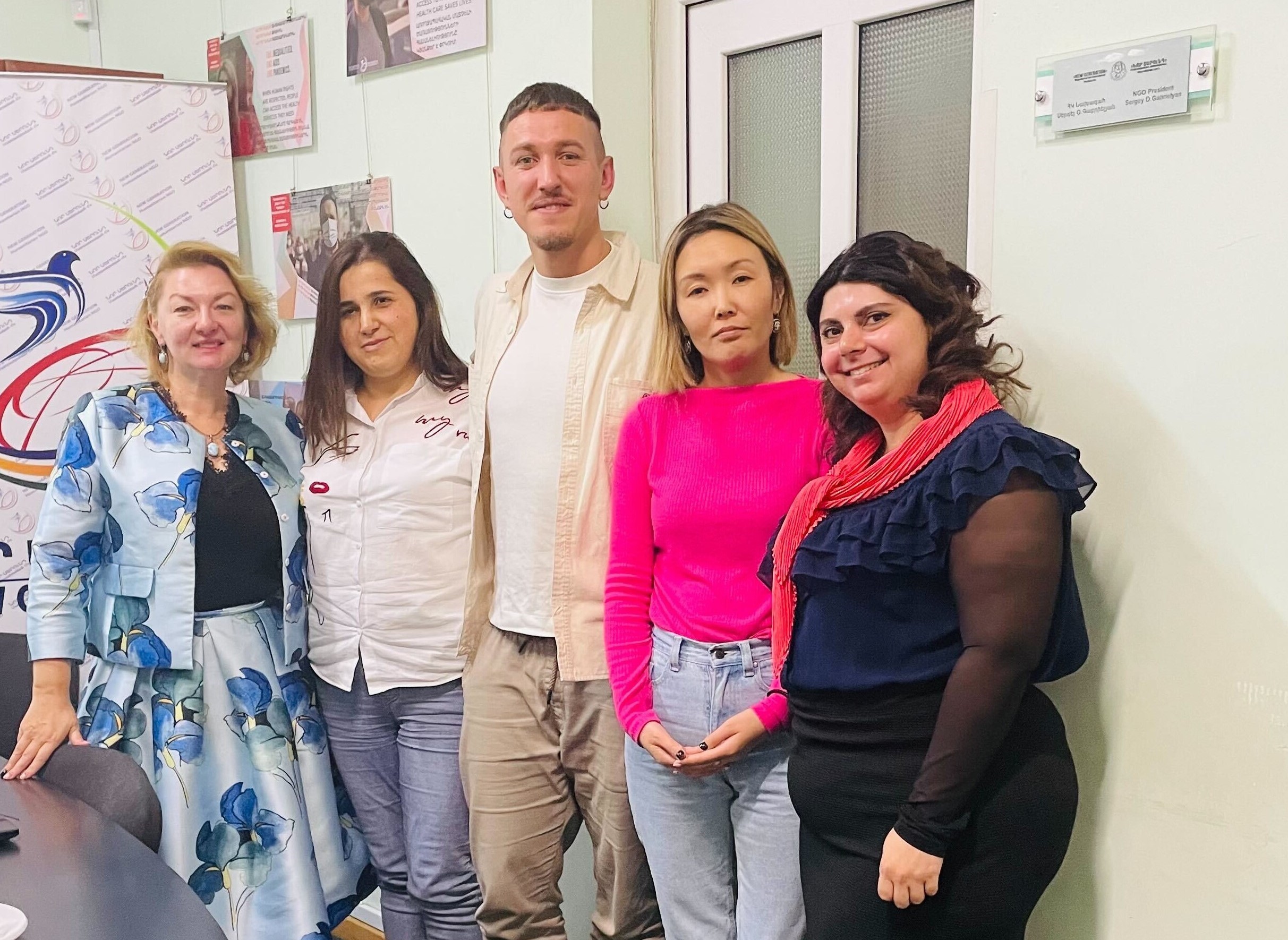“Monkeypox is a fairly new and ongoing challenge to the health and well-being of people in the European region. Although there haven’t been a large number of cases reported in the EECA region, this doesn’t negate the importance of informing our communities about the modes of transmission and risks associated with this virus. In addition, the outbreak of MPX indirectly leads to an increase in the level of stigma and discrimination against LGBT people, which, of course, in terms of the effect on health, is much more dangerous and harmful than the disease itself. This is the first, but definitely not the last discussion that ECOM is going to hold in our region on this subject,” Nikolay Lunchenkov, LGBT Health Coordinator, ECOM.
“MPX is a viral disease that is spread through close physical contact. It’s found not only in humans, but also in animals, more often rodents. The infection outbreak has already been recorded in almost 30 countries around the world, including EECA countries. One of the reasons why the infection is spreading so quickly within the countries may be connected to a large number of public events. After all, June is a pride month, with a lot of pride events, which might become a new platform for the MPX distribution. So, it’s important to remember that you can become infected with MPX through direct contact with a monkeypox rash from a person who is infected; through contact with objects, textiles (clothes, bedding or towels) and surfaces used by an infected person; and through contact with respiratory secretions, kissing and other face-to-face contact. So, if a person feels unwell or has a rash, it’s better to avoid public places and consult a doctor,” said Antons Mozalevskis, Technical Officer: Key Populations, WHO.
- “Virus fatigue” – people are tired of the COVID-19 period and respond less to new diseases.
- “Everyone is an expert”, which challenges trust in actual experts and leading institutions/agencies.
- Theories and myths around the new disease. People think MPX is just a method of government control.
- MPX is portrayed in the media as a “gay disease”.
- There are parallels in the media between MPX and AIDS in the 80s.
- Increased internalized stigma within the community, through blaming PrEP use or lack of condom use (Warning: condoms do not protect against MPX, but protect against sexually transmitted infections).
- Educate yourself and our community. So far, only a few cases have been reported in EECA, and it may seem to many that there’s nothing to worry about. But the coronavirus experience showed that we must be one step ahead. We need to know all the available information to keep our communities safe. Now we still have a chance to deal with disease prevention, and we need to use it.
- Use correct vocabulary. When we speak and write about MPX, we should avoid using words that incite homophobia or racism.
- Have a strong stance against discrimination. From the experience of other countries, we see that the disease is labelled as “gay disease”. If there are cases of discrimination based on sexual orientation in our region – refusal to provide medical services or additional stigmatization of the community – react, speak up about it, and, if necessary, contact ECOM for advice.










